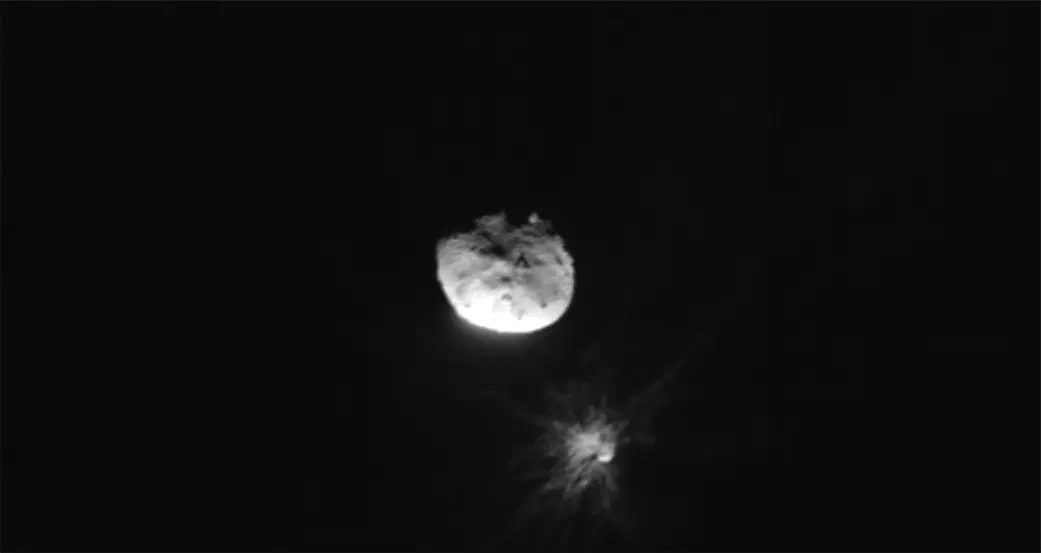
NASA spacecraft changes asteroid's orbit after collision
text_fieldsWashington: Two weeks after the planned experimental collision, NASA confirmed that its spacecraft has altered the orbit of the Dimorphos asteroid by 32 minutes. The US space agency called it a "watershed moment" for planetary defence.
Nancy Chabot, the DART coordination lead, said the spacecraft has given some fascinating data about both asteroid properties and the effectiveness of a kinetic impactor as a planetary defence technology.
The asteroid was chosen as a test subject and posed no actual threat to the earth. The probe was launched on 24 November 2021 to intentionally crash into Dimorphos in order to observe the consequences. Experts were keen to see if the path of an asteroid headed to Earth can be changed by such a collision. On 26 September 2022, the planned collision took place.
Prior to the collision, Dimorphos took 11 hours and 55 minutes to orbit its larger parent asteroid, Didymos. Now, it takes 32 minutes less than its original time. Before the encounter, NASA had defined a minimum successful orbit period change of Dimorphos as a change of 73 seconds or more. Data shows DART has surpassed this minimum benchmark by more than 25 times.
This is the first time humans have purposely changed the motion of a celestial object. NASA's Double Asteroid Redirection Test (DART) is the first planetary defence technology demonstration.
Agency Administrator Bill Nelson said this mission shows that NASA is trying to be ready for whatever the universe throws at us. NASA has proven we are serious as a defender of the planet. "This is a watershed moment for planetary defence and all of humanity, demonstrating commitment from NASA's exceptional team and partners from around the world," he added.
Lori Glaze, director of NASA's Planetary Science Division, said the result of this planned collision is "one important step toward understanding the full effect of DART's impact with its target asteroid." Data is still being accumulated and "as new data come in each day, astronomers will be able to better assess whether, and how, a mission like DART could be used in the future to help protect Earth from a collision with an asteroid if we ever discover one headed our way."






















